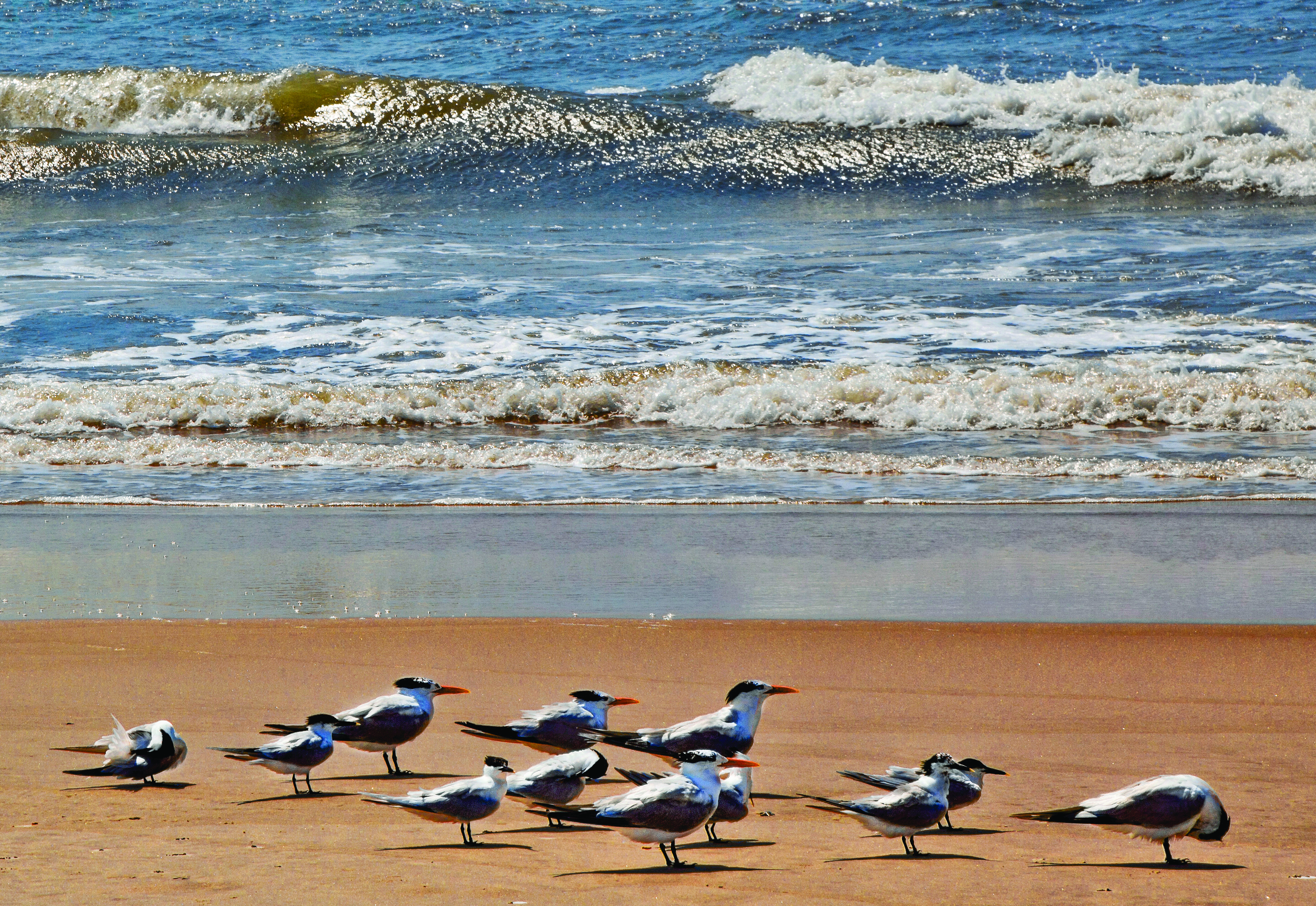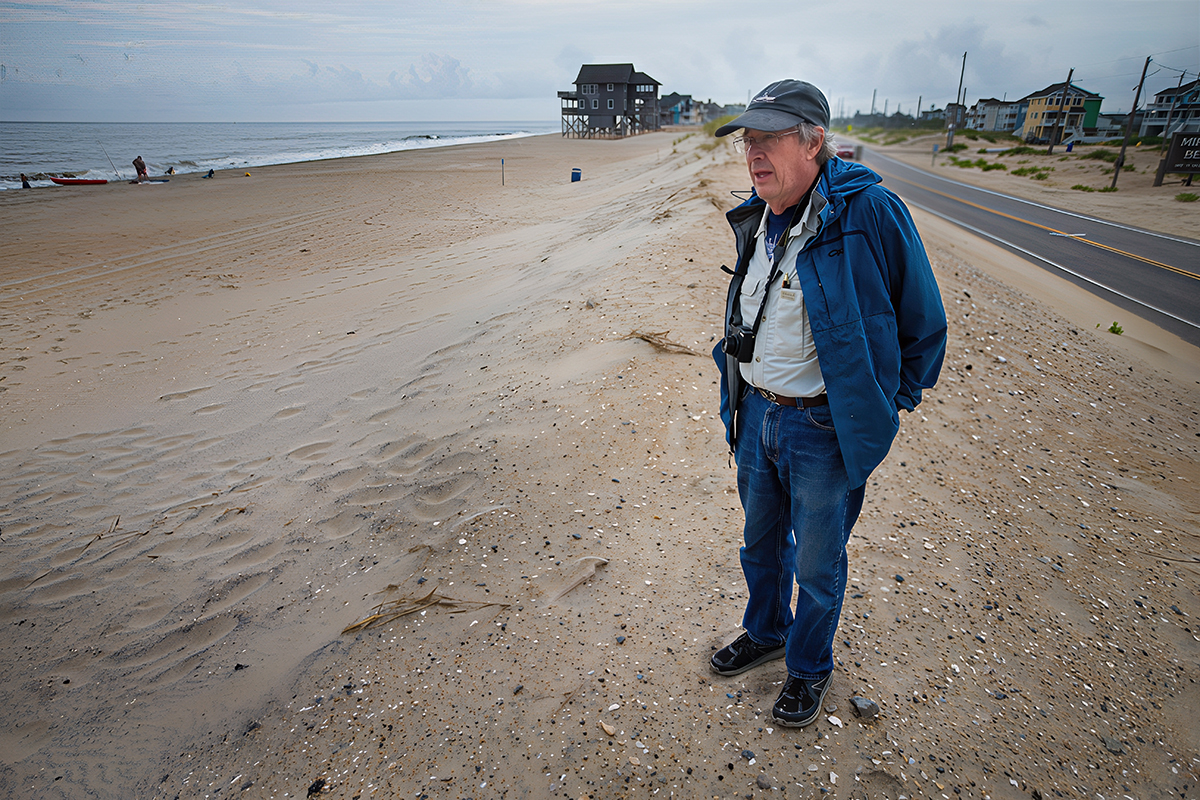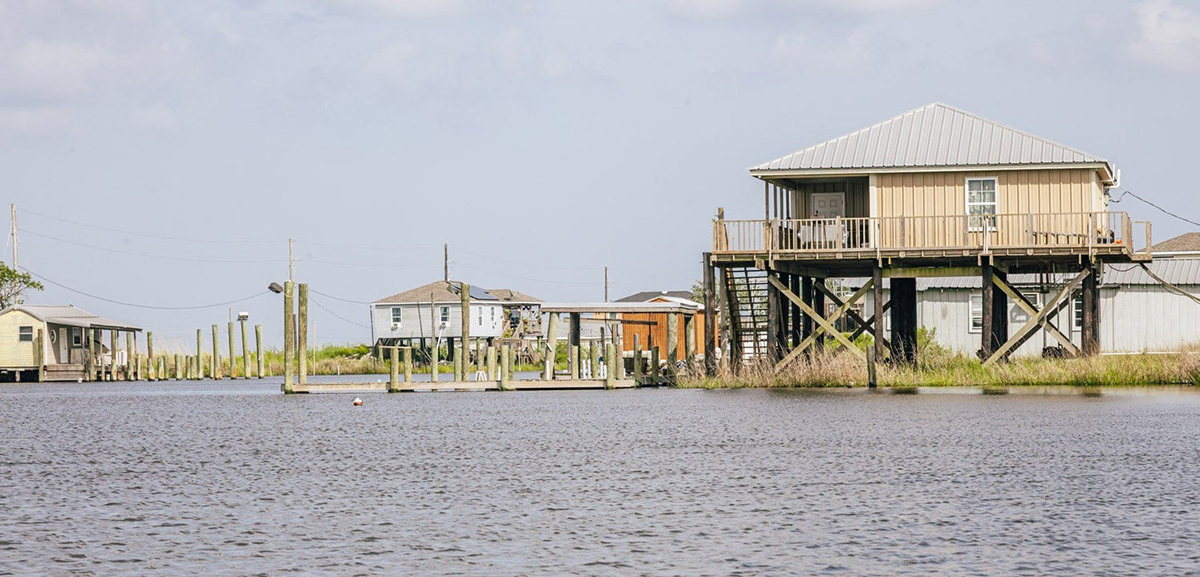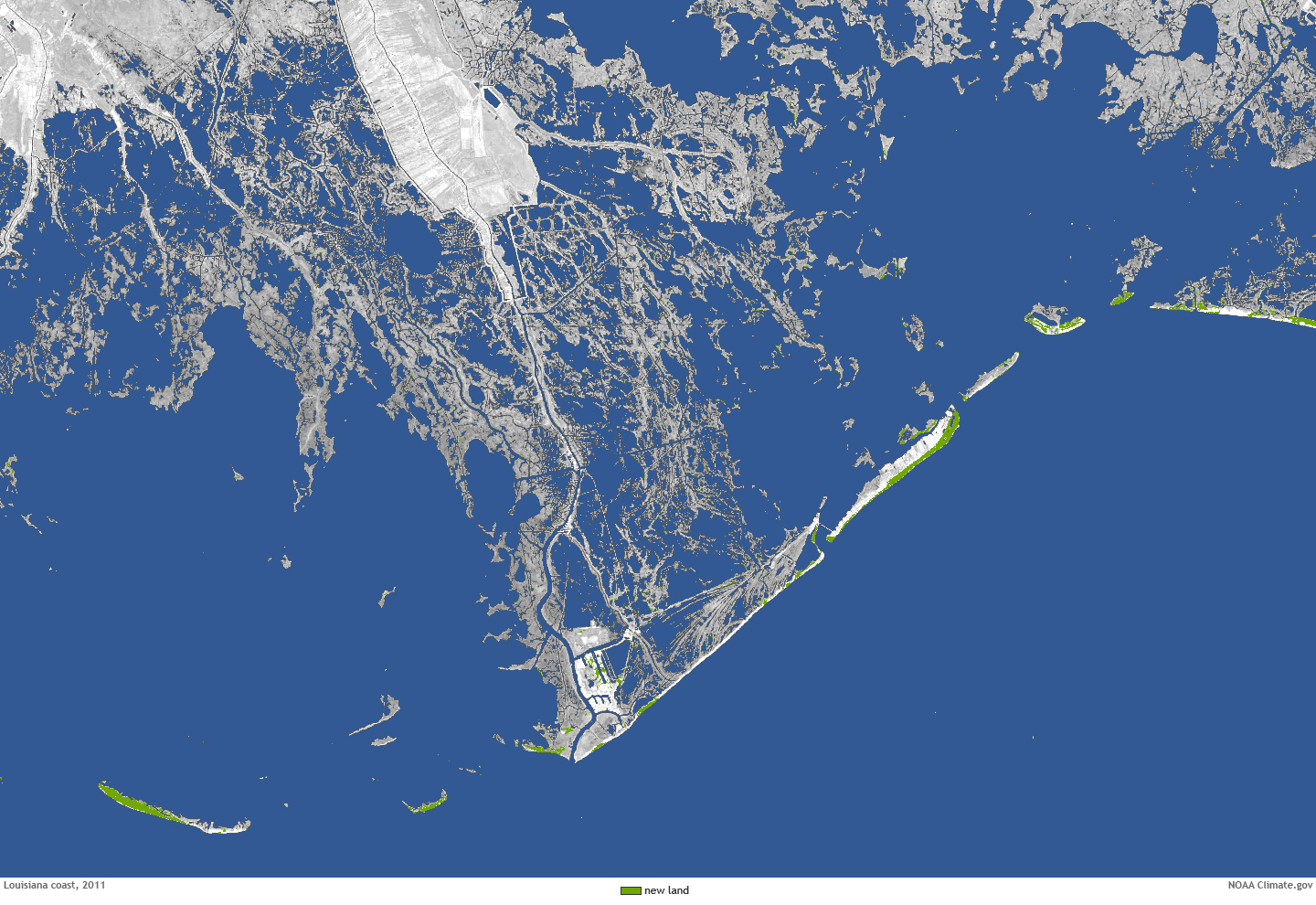Never do I tire of Ocracoke Island, I thought as my Mini Cooper bumped over the ferry ramp onto N.C. 12 to drive the 13 miles to the village. It has a vibrant native community mixed with “come-here’s” that all passionately support its fishing heritage, culture and maritime history. And thanks to being part of Cape Hatteras National Seashore, the beach is pristine.
The next morning, I took advantage of the lull in the flood of tourists to chat with some locals about oil drilling.
Supporter Spotlight
“It’s like completely unsafe,” said owner Tara Grey, owner of Bead by the Sea, overlooking Silver Lake Harbor, “and it will ruin the environment. It will ruin everything what the whole world comes here to enjoy.”
Grey, 39, a long-time visitor to the island, had tired of her fast-paced career in the film industry. She recently moved full-time to the island, opening her shop in an old cedar shake house at the end of Community Square docks. Now she can look out her window and see sea turtles and dolphin.
Supporter Spotlight
Drilling technology, she said, is clearly not foolproof. “We should learn from our mistakes.”
But Grey faulted “a machine of oil corruption” for the continued risk.
“It’s criminal what’s going on – that the government supports this kind of industry because it’s about making money. They’re ripping off the entire country and ruining it.”
Mixed Feelings
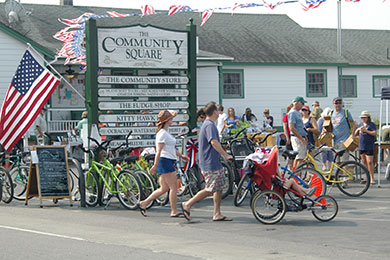
Down the road at his shop on the harbor, David O’Neal, a native carver who owns Downpoint Decoy Shop, said he has mixed feelings about drilling. Surrounded by his meticulously crafted and lifelike ducks, O’Neal seemed to share Grey’s cynicism.
“To tell the truth,” he said, “fishing is shot anyway, so let them drill, if it will lower our taxes.”
Although he concedes a spill would be bad, if drilling is done right “at least it would keep the money in the United States.”
“It’s all politics anyway,” O’Neal said. “They don’t care what I think or what you think. Money controls everything.”
I caught Greg Honeycutt, who chairs the board of the community radio station, WOVV FM, as he was about to leave. Honeycutt said he signed a petition against oil drilling that was circulating around the island.
“My gosh, just think of the negativity of the press, of all the things that can happen environmentally, weather-wise,” he said. “I think it would provide more harm than anything.”
Before I headed off the island, I stopped at Ocracoke Oyster Co., where I met owner Janille Turner sitting at the darkened bar, doing paperwork.
Turner and her husband had run a popular eatery, the Topless Oyster Restaurant, on Dolphin Island in Alabama when the BP well exploded in the Gulf of Mexico in 2010. Businesses, including theirs, were devastated. It wasn’t just the oil that was harmful, she said. The dispersants that were sprayed to break it down burned your body, she said, and caused nosebleeds and respiratory distress.
“BP, they did nothing for any of us, business-wise, to recover,” she said. “It killed us. We hung in there for 11 months. It was terrible.”
Down East
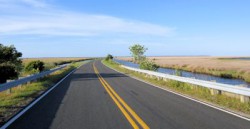
After quick good-byes, I hurried to catch the late afternoon Cedar Island ferry, a 2-hour 15-minute cruise across Pamlico Sound that cost $15 and serves as an alternate route to Beaufort and Morehead City.
Disembarking at the tip of Carteret County, I drove for miles through the vast, flat and extraordinarily isolated marshlands of Cedar Island National Wildlife Refuge.
Eventually, I come upon some small homes with porches and tidy yards. Fishing still provides some of the few jobs on the island.
One native fisherman, Bradley Styron, talked about how, when looking at the big picture, he can see some value in drilling.
“We would be hopefully less dependent on foreign countries for our source of energy,” he said, “but I think it would have to be done with a lot of caution.”
And there are more safeguards now than there used to be, he added.
“I think it has merits and certainly nobody wants to ruin the environment, but you know sometimes you have to take chances and have to weigh the options.”
In the tiny whistle stop of Davis, Joe Taylor, 74, was catching up with a friend at J.D’s Gas at the corner of U.S. 70 and N.C. 12. But he didn’t seem to mind my interruption.
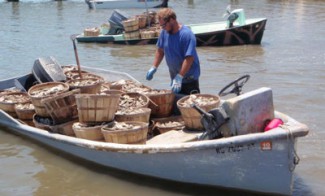
As far as opening the coast to drilling, Taylor, who works at James Styron Fish Co., said he would “love for it” to happen. For one thing, he said, the platforms would only make fishing better.
“Drilling for oil don’t hurt anything,” he said. “This country can’t live in a bubble anyway.”
Maybe there’s no way to completely prevent a spill, he said, but all the fears about disastrous consequences to tourism and the ecosystem are exaggerated. “That’s just down-minded people that think that,” he said. “It’s like you don’t cut your grass because you might spill some gas.”
A little down the road in Smryna, another speck on the map, Arlene Wood, also 74, said she wouldn’t have a problem with drilling, although she definitely would not want oil marring the beaches.
“It’s a double-edged sword,” said Wood, who was working at Lookout Grocery store. “We need the economy here. It’s very poor and we need to tap into it because it’s a resource and we should keep the money here.”
Beaufort
But even in the small coastal city of Beaufort, a pretty maritime community with a lot more commerce, folks put hopes for economic gain above concerns about pollution.
“If it’s going to benefit us, yeah,” said Robert Utley Jr., a forklift operator at Radio Island Marina. “The thing I’d be worried about is the leaks and stuff. If they could do it without spills, it’d be great. It would bring jobs.”
Desiree Rouse, 32, from Morehead, with her two young children in tow at Radio Island beach access, similarly favored offshore exploration, but worried about whether it could be done without an accident.
“I hope that they could,” she said. “But you can’t guarantee that.”
Rouse’s brother has fought in Iraq and Afghanistan, and her father is a retired Marine Corps sergeant major, so she is keenly sensitive to oil’s connection to U.S. conflicts in the Mideast and the benefit of domestic oil.
“I think that’s why we’re constantly going over there,” she said. “Yes, it’s good, we’ll have our own fuel. We’ll deal with our own resources. But you think of the future for our kids. Are they going to live in a world where they can’t swim in the ocean? And you want the country to stay safe.”
Marissa Chadwick, who was also enjoying a day at the Radio Island beach, said she believes drilling could bring jobs.
Chadwick, 16, said her father, a boatbuilder from Harker’s Island, has done shrimping off Ocracoke and has traveled to New Jersey to fish. Now, he’s trying to get a job on an oil rig in the Great Lakes.
“I think it would be a good thing,” she said, “because a lot of people around here can’t make money fishing or what-not.”
Pamlico County
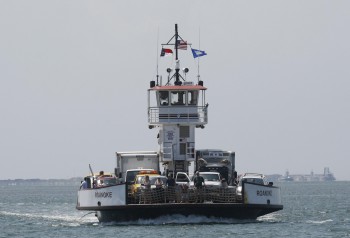
Next, I headed inland to Cherry Point to take the 20-minute free ferry to Minnesott Beach, a Pamlico County community of 400 along the Neuse River that actually has no beach.
I stopped at Town Hall and found the sole person in the building, town manager Carolyn Braly, who good-naturedly switched gears without even a flicker of annoyance.
“After seeing what happened in the Gulf,” she said, responding to my inquiry about drilling, “I don’t trust many of the big businesses or the government to take care of us. I know there are little spills going on all the time. There’s leakage.”
Braly, 72 said she moved to Minnesott Beach in 2001 after being flooded out from Rocky Mount by Hurricane Floyd. So she’s seen water pollution. It’s bad enough, she said, that sewage dumped by some upstream communities, as well as diapers and kitchen garbage dumped by boaters, shows up in the Neuse River off Minnesott Beach.
“There’s so much pollution going on everywhere,” she said, “to make something else available to pollute the area.”
With just 800 or so residents, and up to 5,000 sailboats that dock there annually, the nearby waterfront town of Oriental, favored by sailors for its protected harbor, has its own version of tourism.
Peter Christiansen, 21, working his summer job at Inland Waterway Provision Co. in Oriental, is a business major at Western Carolina University whose parents have a home in Oriental. He said he is “not a fan” of drilling.
“I’m pretty protective of ocean waters, because I like to go out on the water and I like it clean,” said Christiansen, who enjoys sailing. “Being out on the water, you know how pretty it is. And water should be pretty.”
Christiansen said he would be willing to pay more for gasoline, but he is not expecting dramatic improvements in U.S. energy policies. “I’m not optimistic, no. I think people are greedy.”
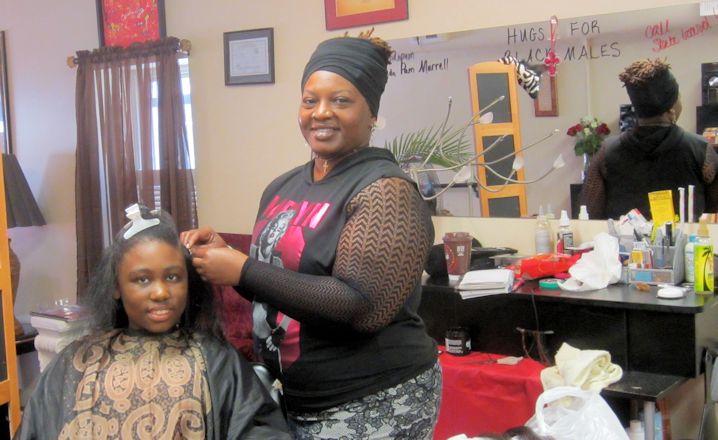
New Bern
Finally, the next morning, I arrive at my destination – New Bern, a lovely historic town on the upper Neuse River.
Even though it is tucked in from the ocean, people I spoke with here didn’t pause for an instant in considering the possible impacts of Atlantic oil drilling on their community.
“I moved here from Texas,” said Dean Quadir, manager of Persimmons Waterfront Restaurant in New Bern. “I spent some time in Galveston. There were dirty beaches – very, very dirty beaches,” he said. “All you see is the platforms and the big boats. I wouldn’t want to see that here.”
Down the road from Tryon Palace, at the tail end of the historic district, I visited Linda Murrell’s beauty shop, Natural Creations Hair Salon. Inside, Murrell, a 43-year-old mother of three, was in the process of braiding 12-year-old Gabrielle McRae’s hair.
But she said she’d be happy to talk about oil drilling.
“The first thing that jumped to my mind: ‘Are they crazy?’” she said, relating her initial reaction to the proposal. “North Carolina is a hidden treasure. Oh my god, just leave it alone!”
Murrell said that the money would not be worth the risk to the coast. “Not when it’s going to take away from the beauty,” she said. “Nobody’s going to come to the coast if they do this. Who wants to see an oil well?”
Gabrielle, who lives in Jones County, agreed with Murrell.
“I don’t think they should do it because it would kill the animals in the sea,” she said. “It will hurt the animals. There’s a lot more jobs they can do out here. Just don’t harm the water.”
Joyce Price, owner of Stanly Hall Ballroom near the riverfront, could see both sides. “Well it has to be done somewhere,” she said. “I would love for our country to be energy independent. If it’s a high risk to our environment, then I’d certainly have to consider that.”
But until people become more efficient in their energy use, and good alternatives are found, it would be nice to not depend on foreign oil.
“You see all the mayhem in the Middle East,” she said. “It just would be great to be free of them. We wouldn’t even have to go to war if nobody bought their oil anymore.”
Tess Malijenovsky contributed to this report.



